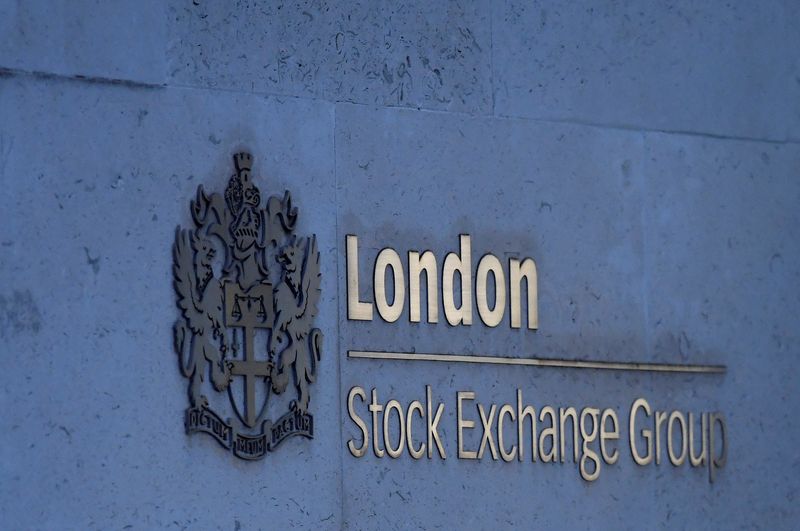By Tom Wilson
LONDON (Reuters) - Bonds held onto gains on Wednesday after the U.S. Federal Reserve's surprise 50 basis point interest rate cut, part of global efforts to contain economic damage from the coronavirus outbreak.
The Fed's first off-schedule move since the 2008 financial crisis came with comments highlighting both the scale of the challenge and the limits of monetary policy.
In response, the benchmark 10-year U.S. Treasuries yield (US10YT=RR), which falls when prices rise, held below 1% - not far over the overnight low of 0.9060%. The yield has fallen for ten straight days, its longest slide in at least a generation.
Euro zone bond yields also held near record lows on Wednesday, with Germany's benchmark 10-year Bund yield (DE10YT=RR) around -0.64%, near six-month lows set on Monday.
Some saw the Fed's extraordinary move as a decision to move hard and early because it expected further economic damage from the spread of the coronavirus.
"They have signalled willingness to take further action, which is why we are seeing a further rally in bonds," said Tim Drayson, head of economics at Legal & General Investment management. "Some argue that monetary policy can't fight the supply shock - but it will support demand and confidence."
With safe-haven currencies in demand, the dollar clawed back some ground from near five-month lows versus the yen
Global stock markets edged up as investors weighed prospects for further central bank support, while a strong performance by Joe Biden in the Democratic Party primaries in the United States also emboldened bets.
The Euro STOXX 600 (STOXX) gained 1.5%, on course for a third straight days of gains. Markets in Frankfurt (GDAXI), London (FTSE) and Paris (FCHI) gained a similar amount.
"After the action from the Fed the market is very, very watchful now for potential moves from other central banks," said Jeremy Stretch, head of G10 FX strategy at CIBC.
On Wall Street, S&P 500 futures (ESc1) climbed 1.8% on Biden's showing, after falling overnight despite the Fed's rate cut.
Biden, a moderate seen as less likely to raise taxes and impose new financial regulations, won primaries in nine states. That set up a one-on-one battle for the Democratic presidential nomination with democratic socialist Bernie Sanders.
The European moves built on gains in Asia, where MSCI's broadest index of shares outside Japan (MIAPJ0000PUS) rose 0.3%.
Korean stocks (KS11) gained 2% on a $9.8 billion government stimulus package to mitigate the coronavirus impact.
The MSCI world equity index (MIWD00000PUS), which tracks shares in 49 countries, gained 0.2%. It is still down around 10% falling a brutal sell-off last week as fears over economic damage from the coronavirus gripped markets.
(Graphic: Coronavirus hits financial markets - https://fingfx.thomsonreuters.com/gfx/mkt/13/2852/2817/Pasted%20Image.jpg)
CUTS NOT ENOUGH?
The Fed's surprise move followed a shift in money market pricing late last week. <0#FF:> Futures swung rapidly to anticipate such a cut at the Fed's March meeting.
Now, they imply another 50 basis points of easing by July, even though investors and the Fed itself raised doubts that easing will help deal with a public health crisis.
"If you're in China and you can direct liquidity exactly where you need to, and have rate cuts where you want them to be, monetary policy is very effective," said Sebastien Galy, senior macro strategist at Nordea Asset Management.
"In the West, in a democracy, monetary policy is less effective - you need to incentivise banks to do what is in to the benefit of the whole."
Investors were also watching the Bank of England for signs it would follow the Fed. Money markets have moved to fully price in a BoE rate cut of 25 basis points at its next meeting, up from a chance of 80% before the Fed move.
Sterling dipped 0.1% against the U.S. dollar
The coronavirus has killed more than 3,000 people, about 3.4% of those infected - far above seasonal flu's fatality rate of under 1%. It continues to spread beyond China, with Italy reporting a jump in deaths to 79 and South Korea reporting more than 500 new cases on Wednesday.

"The question here is whether a conventional interest rate response is sufficient," said Sameer Goel, chief strategist, Asia macro, at Deutsche Bank (DE:DBKGn) in Singapore.